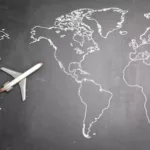From Language Barriers To Cultural Differences: How To Overcome Challenges While Studying Abroad

Studying abroad is an undeniable opportunity to discover new cultures, learn languages and gain life-long experiences. However, it can also be a challenging experience that comes with its own set of difficulties.
From language barriers to cultural differences, studying abroad requires stepping out of your comfort zone and adapting to unfamiliar environments. But fear not! In this post, we’ll explore how you can overcome these challenges and make the most of your study abroad journey!
Why Study Abroad?
There are several benefits to studying abroad. One of the most important is that it can help you better understand other cultures and how to communicate with people from those cultures.
You’ll be exposed to fresh perspectives while you study abroad. It can be a challenging experience, but it’s also an incredibly rewarding one. You’ll discover more about who you are and the environment you live in.
Studying abroad can also help with the acquisition of new skills and knowledge. For example, if you study in a country where another language is spoken, you can learn that language. It has the potential to be beneficial both professionally and emotionally.
Studying abroad is just plain pleasure! You’ll meet new people, see amazing sights, and have experiences that you’ll never forget.
What are the challenges of Studying Abroad?
One of the main challenges students face when studying abroad is language barriers. It cannot be easy to communicate with locals and other students if you don’t speak the language fluently. Another challenge is cultural differences. You may need to familiarize yourself with the customs and culture of your host country, which can make it difficult to adjust.
Homesickness is another common challenge among students studying abroad. Feeling homesick when you’re away from home and family for an extended period is normal. But there are ways to overcome these challenges and enjoy your time studying abroad.
Financial concerns are also a significant challenge of studying abroad. Depending on the destination and program, studying abroad can be expensive. Tuition fees, living expenses, travel costs, and other related expenses can quickly add up. Therefore, researching different programs and scholarships is important to help offset the cost of studying abroad.
How to Overcome Language Difficulties When Abroad Studying?
One of the biggest challenges students face when studying abroad is overcoming language barriers. While English is the most widely spoken language in the world, it is only sometimes the language that is spoken in other countries. As a result, it can make communicating with locals and fellow students very difficult.
You can do the following things to overcome this difficulty:-
- Learn a few fundamental words and phrases in the language. Even if you cannot have entire conversations, being able to say hello, thank you, and goodbye will go a long way.
- Find a study buddy who speaks the local language. This person can help you with translations and pronunciation.
- Use technology to your advantage. Many apps and websites can help you learn new languages or practice ones you already know.
- Be patient and keep trying. Making mistakes when speaking a new language is normal, so keep going if you do not understand everything immediately. Simply continue to practice, and you will ultimately improve.
How to Overcome Cultural Differences while Studying Abroad?
When you study abroad, you will be exposed to a new culture. It can be both exciting and challenging. You may find yourself in unfamiliar surroundings and with people with different customs and values. It is important to remember that everyone is different and that there is no right or wrong way to do things. The best way to overcome cultural differences is to learn as much as possible about the culture before you go, be open-minded and respectful of others, and be willing to try new things.
If you are having difficulty communicating with someone from another culture, try using body language or pictures to help get your point across. It is also helpful to ask questions about the other person’s culture so that you can better understand their perspective. Finally, remember that it takes time to adjust to a new culture, so give yourself time to settle in, and don’t be afraid to ask for help if needed.










